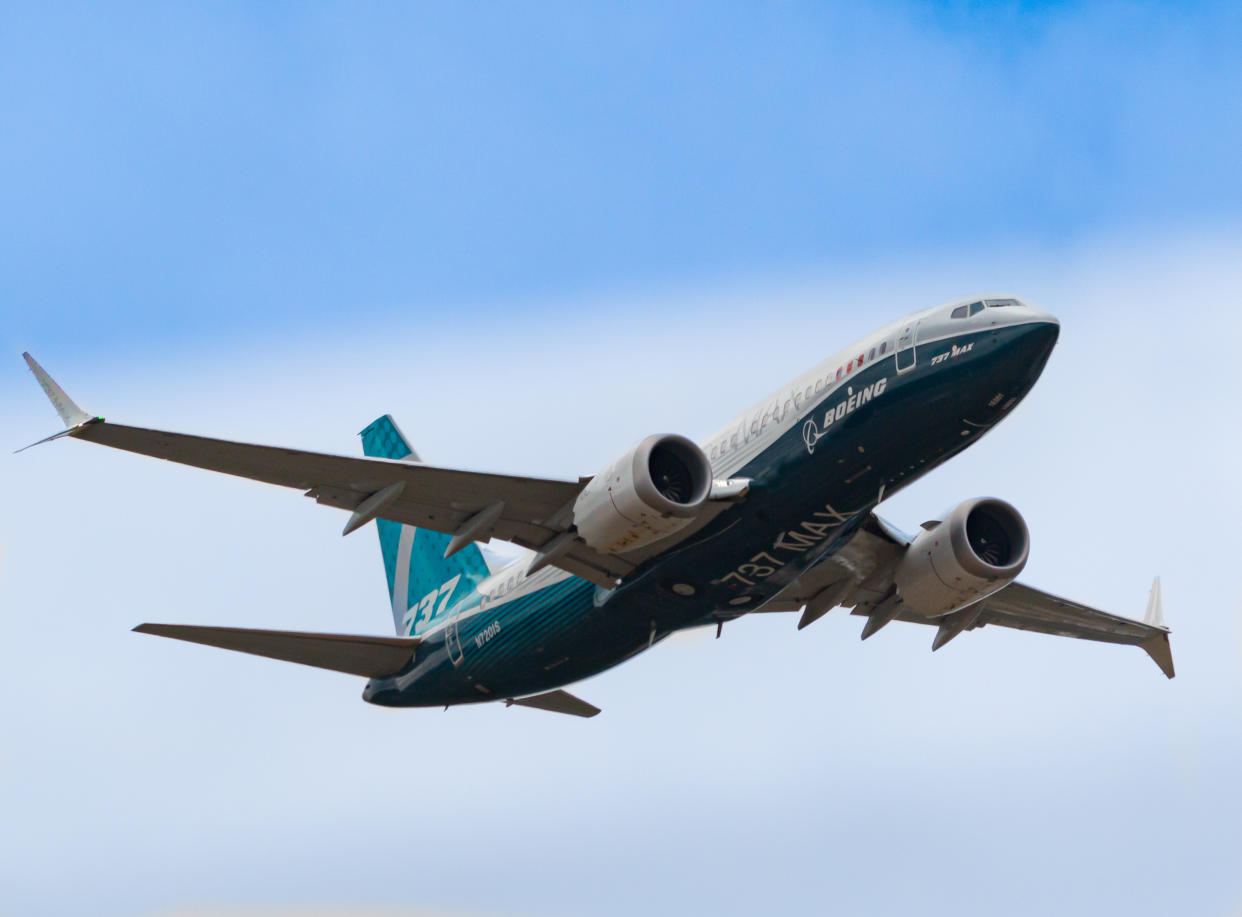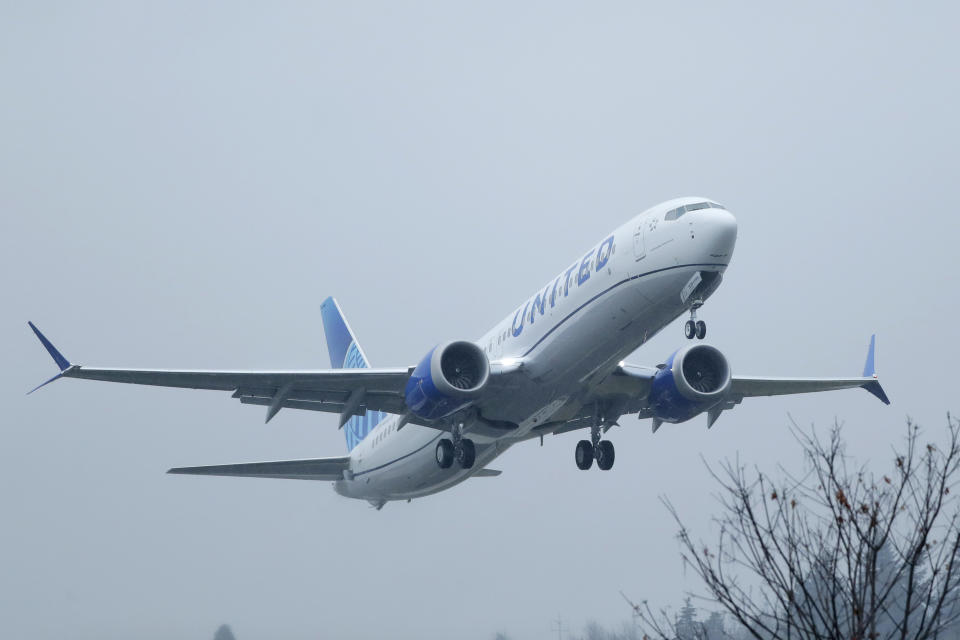Why new CEO David Calhoun doesn't think biting messages reflect Boeing's culture

During his first earnings call as Boeing’s (BA) CEO, David Calhoun said former employees who exchanged embarrassing instant messages condemning the design and certification of the troubled 737 Max were part of a “micro-culture” that does not reflect the company’s values.
Weeks ago, the embattled aerospace giant handed over a series of messages to the Federal Aviation Administration (FAA) and Congress, in connection with investigations into the causes of two 737 Max crashes that killed all passengers and crew on board. The messages were exchanged years before the aircraft went to market and were not disclosed until months after both crashes.
Pilots and family members of crash victims who have filed lawsuits against Boeing claim the messages show that the company prioritized profits over safety. They argue the company pushed the plane faster to market by misleading regulators, customers and pilots about capabilities of MCAS, an automated feature that pushed the plane’s nose down to prevent engine stalls.
The exchanges, which date from 2013 to 2016 when the company was seeking FAA approval for the aircraft and its training requirements, were noteworthy for the scathing language some employees used — who derided the 737 Max’s chief architects as “clowns” and their supervisors as “monkeys.”
On Wednesday, Calhoun told reporters that quickly identifying such messages is now part of his responsibility, and that the company is working to improve its ability to detect them.
“With respect to culture, leadership and the disciplines we apply to micro-cultures matters a lot,” he said. “And somehow, some way, that didn't happen in this instance.”
Make engineers ‘king’ again

The grounded plane has become a legal, financial and public relations quagmire for one of the U.S. economy’s biggest companies. On Wednesday, Boeing reported a staggering 2019 annual loss — the first since 1997 and a big swing from the prior year’s profit of $3.87 billion.
A portion of the communications were in message threads between Boeing’s former Chief Technical Pilot and personnel from Boeing’s Flight Deck Crew Operations, Human Factors and Business Development departments.
In a widely publicized 2017 exchange, one Boeing employee wrote, “This airplane is designed by clowns, who in turn are supervised by monkeys.”
In another, the Chief Technical Pilot wrote, "I want to stress the importance of holding firm that there will not be any type of simulator training required to transition from NG to Max."
One particularly pointed question from a separate employee asked: “Would you put your family on a MAX simulator trained aircraft? I wouldn’t.”
Bill Higgs, retired cofounder and CEO of Mustang Engineering, a $2 billion offshore oil platform design and engineering firm, said Boeing needs to return to a philosophy where engineers are “king.”
He added: “Boeing’s leadership moved away from close contact with all levels of the organization, which closed down the strong open communication top to bottom, that we experienced in the mid 90s,” said Higgs, who also authored a book called “Culture Code Champions,” a book about fostering good corporate culture.
“This opened the way for communication channels to develop and politics to seep into the organization, and engineering was moved to a back seat in the organization,” said Higgs. “Fixing this will take putting engineers back in charge, with visible control.”
‘Feel the pulse’ of Boeing’s front line
A lack of simulator training is one of several factors raised as contributing to both crashes. Had simulator training been required and properly implemented, some experts argue, it may have prevented the accidents by putting pilots on notice of the plane’s MCAS system, known to have activated incorrectly in response to errant data.
Amid fierce criticism, Calhoun cautioned against overly-interpreting the internal messages. He also pushed back against linking Boeing engineers’ decision-making on how pilots would likely interact with MCAS to a broader cultural issue.
“Would anybody involved in that decision suggest that cost pressures was the reason for it, or suggested schedule pressures was the reason for it. Yeah, no, I don't think so,” Calhoun said on the analyst call.
“I went to that spot. I went to those engineers. They thought that they were doing exactly the right thing based on the experience that they had in flying the 737.”
Higgs told Yahoo Finance that Boeing’s management, now headquartered in Chicago and apart from its manufacturing facilities in Washington state and South Carolina, needs to be co-located with engineering and production — so they can “get deep into the organization and feel the pulse.”
Calhoun, who was a Boeing board member at the time of both crashes, did not explain how the company would flag and act upon potentially critical internal communications. However, he suggested it could “reinvigorate” the process, and hold its leaders to a higher standard.
“We have to be on the lookout for stuff like that. We have to understand that when we see flamboyant emails and silly ways of saying things, and/or any inclination whatsoever to mislead another party, a counter-party, we have to deal with it then and there, raise the issue, and take disciplinary actions where appropriate,” Calhoun said.
“Going forward, as you well know, I would like to know if somebody writes an instant message like that, and/or even feels like that while we're making recommendations to the FAA on any subject related to safety,” he said.
Alexis Keenan is a reporter for Yahoo Finance. Follow her on Twitter @alexiskweed.
Follow Yahoo Finance on Twitter, Facebook, Instagram, Flipboard, LinkedIn, YouTube, and Reddit.

